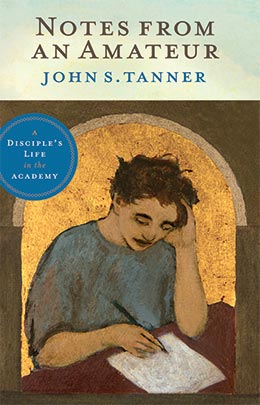Patriots and Pioneers
John S. Tanner, Notes from an Ameteur: A Disciple’s Life in the Academy (Provo, UT: Religious Studies Center; Salt Lake City: Deseret Book, 2011), 111–13.
In Utah we celebrate two major holidays in July: the 4th and the 24th. These often run together in the public mind, and no wonder! Both occur when the weather is hot. Both are celebrated with parades and picnics, flags and fireworks, patriotic speeches and songs. And both commemorate a founding: one of a nation and the other of a state. Hence as we gather with friends and family, it can be difficult to keep straight if the food, fun, and festivities are in honor of the patriots of ’76 or the pioneers of ’47.
The two sets of founders can seem nearly synonymous. We even sing of the Mormon pioneers as “the builders of the nation” and the “founders we revere”—phrases that could apply just as easily to our founding patriots (or even to our pilgrim forebears) as to the pioneers who settled in Utah. There exists a sort of homology among pilgrim, patriot, and pioneer. In their own right, these were all builders and founders of the nation. Moreover, the history of each group in the popular mind is one of heroic struggle against great odds to secure liberty. Never mind that the Mormon pioneers fled to the territories to reclaim the liberty they felt had been denied them in the States. Their journey into the wilderness to reestablish a “city on a hill” recapitulated that of the pilgrims.
I celebrated the 24th this year by climbing Sunset Peak, which straddles Big and Little Cottonwood Canyons. As I climbed the peak from the Brighton trailhead, my mind reverted to another 24th of July celebration long ago. It exposed the potential tension between pioneer and patriot. On July 24, 1857, ten years after the Saints entered the Valley of the Great Salt Lake, Brigham Young took about 2,500 Latter-day Saints up to Brighton near Silver Lake for a grand party commemorating a decade in Deseret. There were six brass bands, dancing, plenty of food, and patriotic speeches. American flags flew from surrounding peaks and pine trees. Ironically, on the very day that the Saints were thus celebrating, messengers arrived with fearful news: the United States had an army on the march toward Salt Lake to put down a supposed Mormon rebellion. The news rent asunder what is regularly elided in our July holidays. It exposed the potential for a rift between God and country.
I thought about that dramatic Pioneer Day as I hiked up Sunset Peak from the very spot the Saints had gathered over 150 years ago. From the top, I had fine views west across the Salt Lake Valley toward Deseret Peak, south to Mount Timpanogos, east across Heber Valley to the Uintas, and north to Twin Peak and other peaks on the Wasatch range. Surrounded by “purple mountain majesties”on every side, my heart filled with gratitude for this land, which is at once America and Zion to me. I am grateful that the Stars and Stripes fly over it. I am also grateful that the Church has erected an ensign to the nations here in the tops of the mountains.
I have little hope that tension between God and Caesar will disappear, at least until the Millennium. Such conflict is not new. Jesus dealt deftly with it in his day, living as he did in a Jewish land dominated by a foreign imperial power. Church-state conflict has formed a staple element of Western literature and political thought since Sophocles’ Antigone. Thomas More was not the first, nor will he be the last, martyr to go to his death protesting that he dies “the King’s good subject, only God’s first.”
I too occasionally have felt the tug between God and country. But on the whole, these twin loves are closely aligned for me as for most Latter-day Saints. We learn at an early age to respect the rule of law and the “kings, presidents, rulers, and magistrates” (Articles of Faith 1:12) who enact it. The pioneers at Brighton shared similar values. Many of them, like Brigham Young, were Yankees whose ancestors had fought in the American Revolution. Some pioneers at Brighton had marched with the Mormon Battalion for the United States. Virtually all the pioneers opposed Johnston’s army in the name of religious liberty, a core American value. The Mormons at Brighton were at heart patriots as well as pioneers. We remain so today.
Thus in July when I go to parades, watch fireworks, and eat at picnics, I don’t worry too much if the celebrants seem vague about whether the festivities honor patriots or pioneers. Both holidays stir similar feelings of gratitude in my soul for the builders of a land I love, whether patriot or pioneer.
